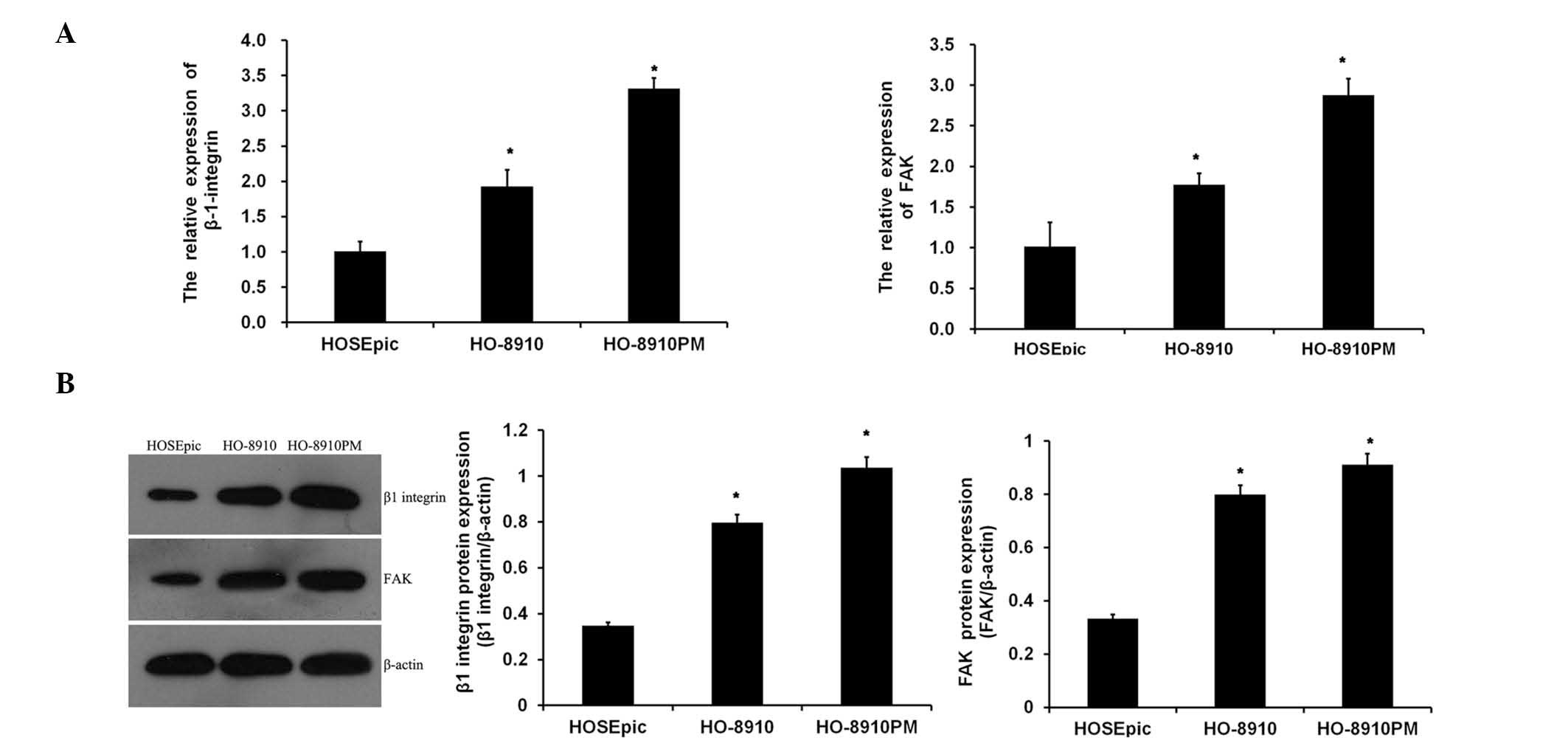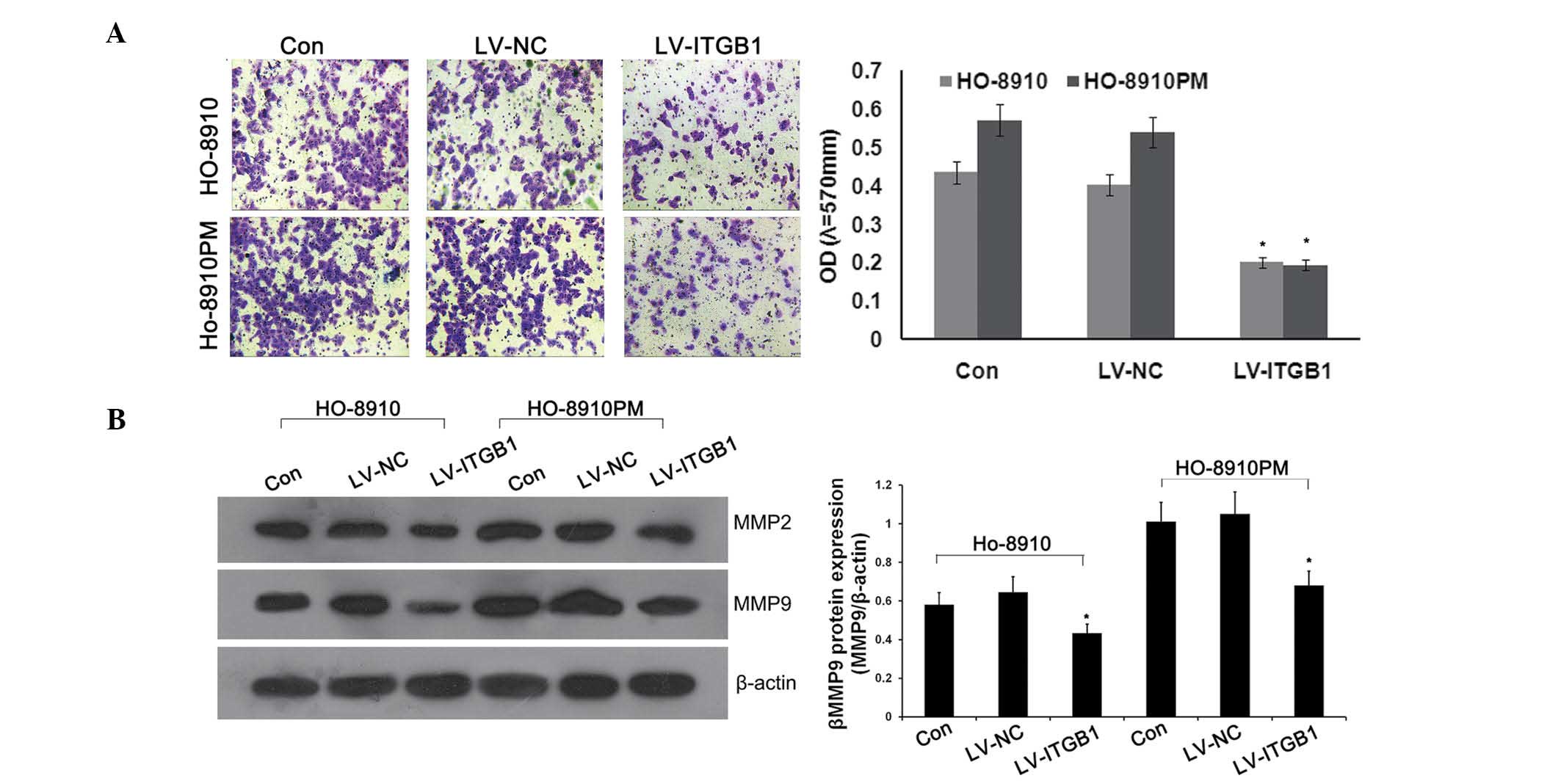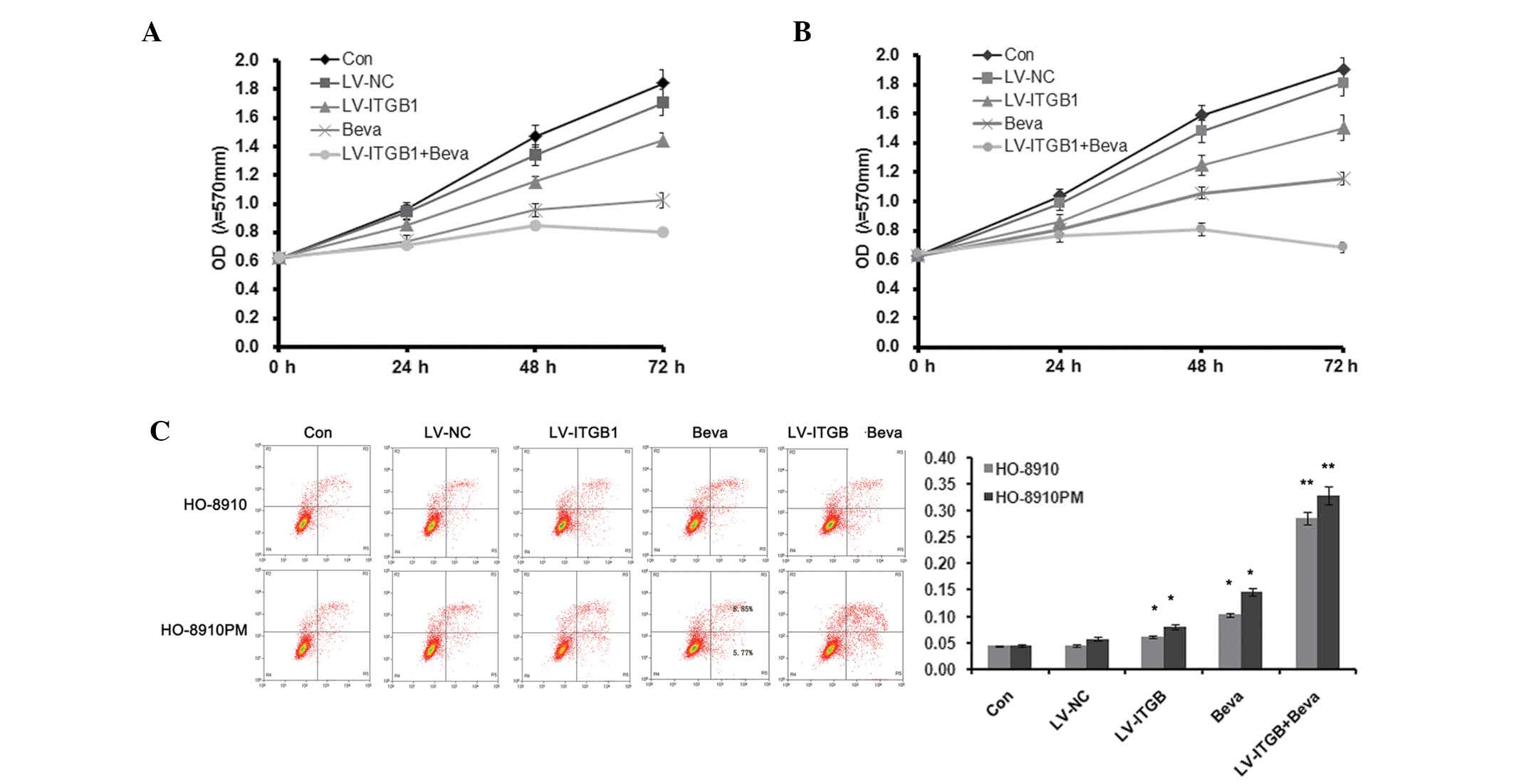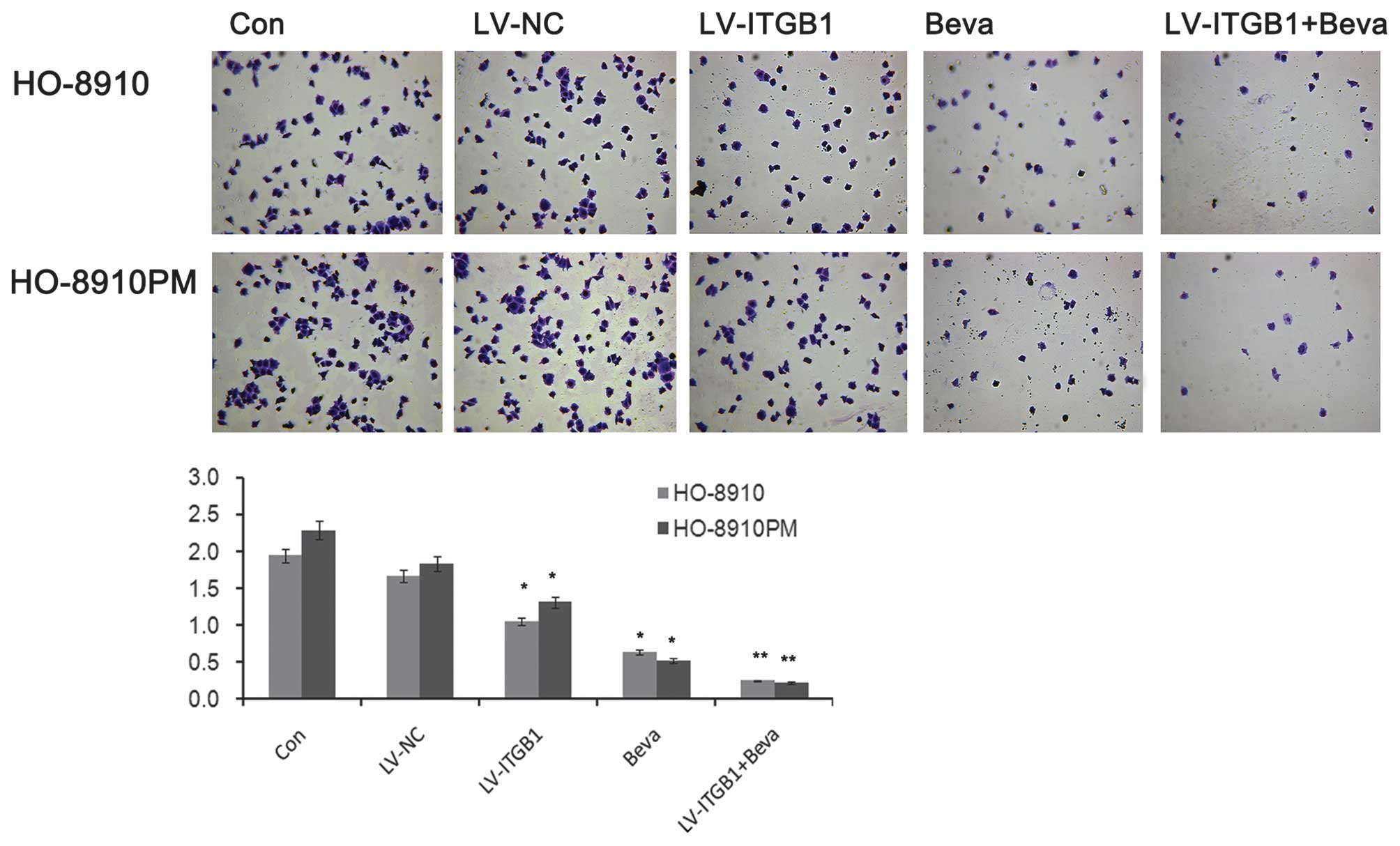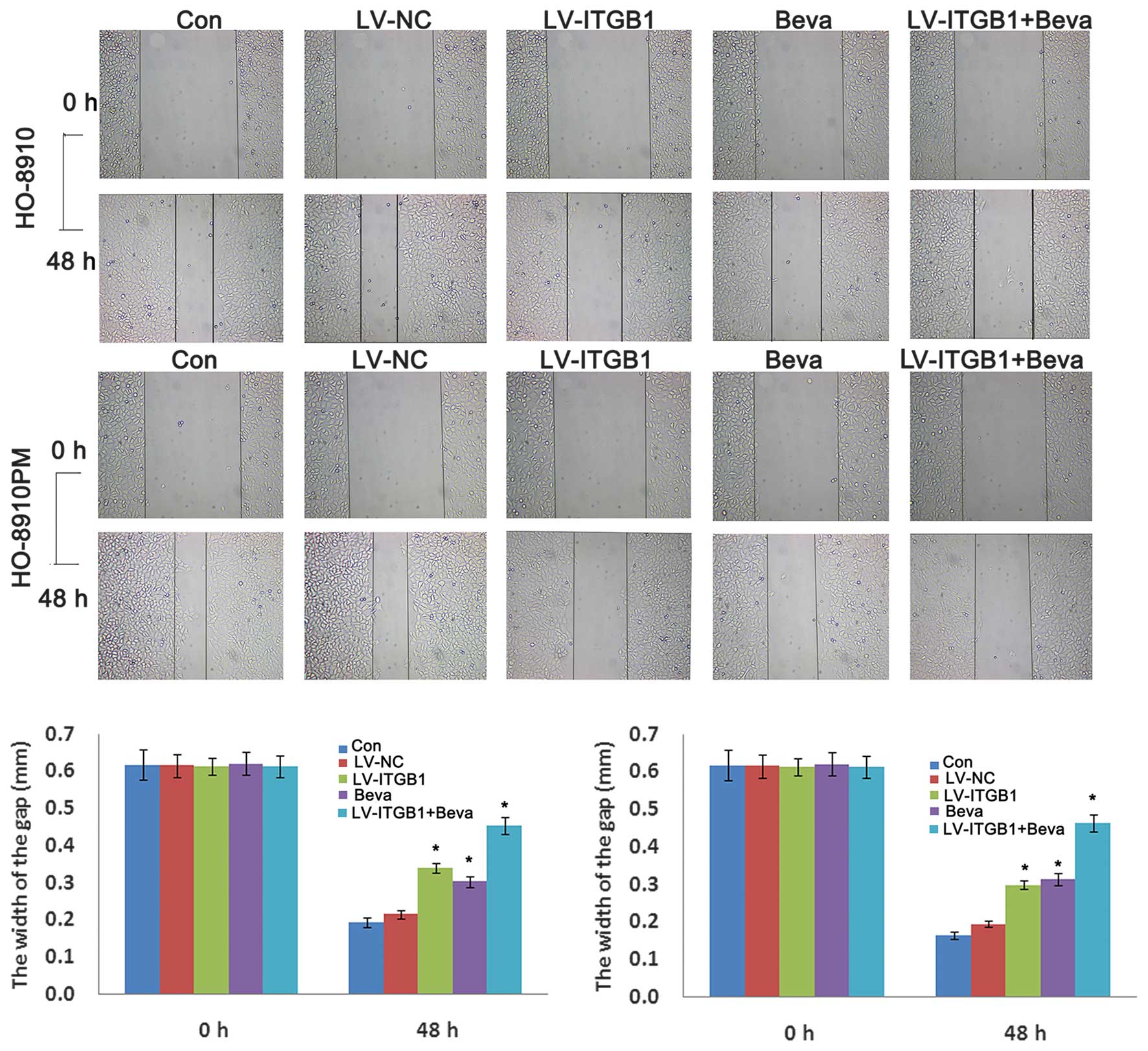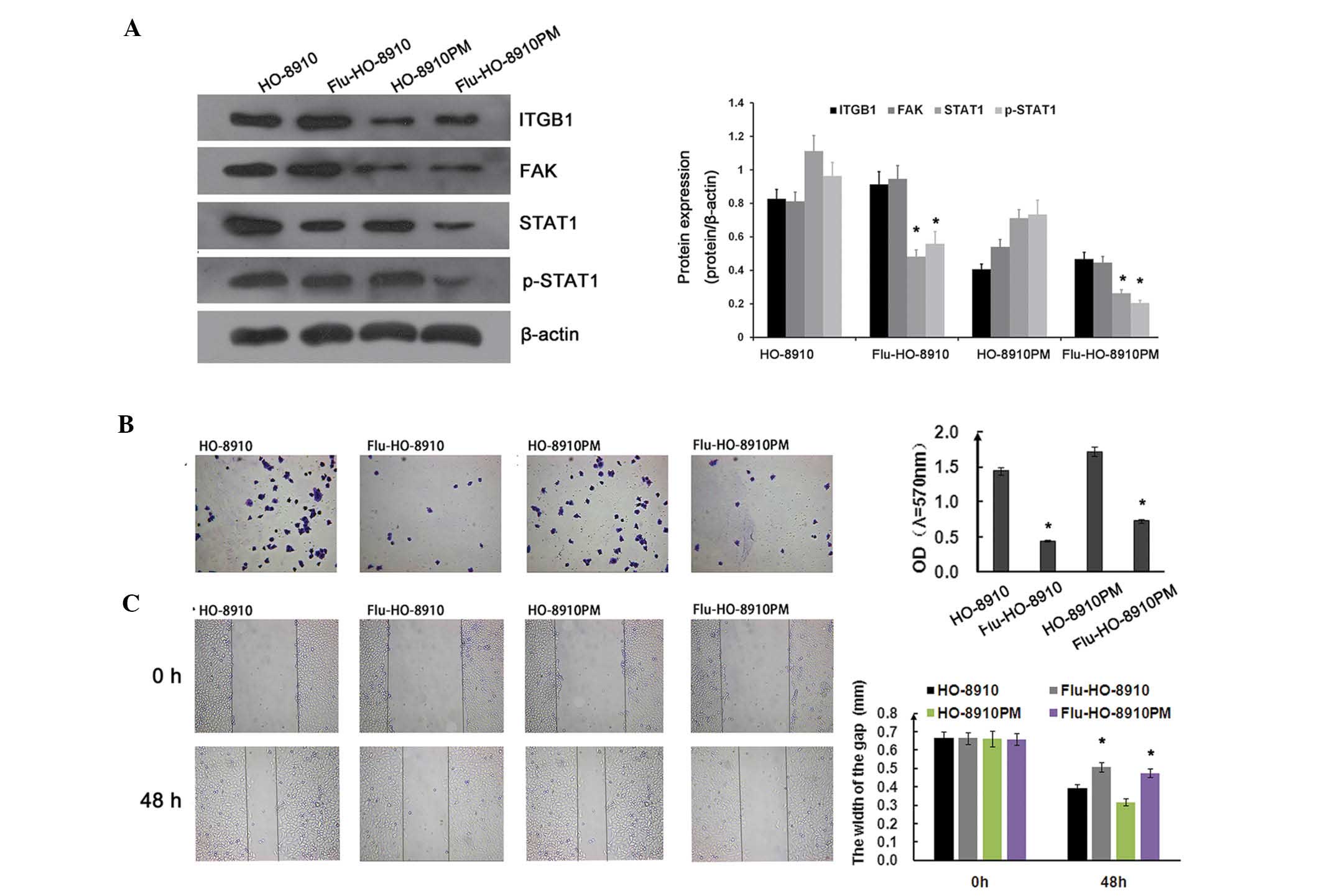|
1
|
Yang W, Han W, Ye S, Liu D, Wu J, Liu H,
Li C and Chen H: Fibroblast activation protein-α promotes ovarian
cancer cell proliferation and invasion via extracellular and
intracellular signaling mechanisms. Exp Mol Pathol. 95:105–110.
2013. View Article : Google Scholar : PubMed/NCBI
|
|
2
|
Heyman L, Kellouche S, Fernandes J, Dutoit
S, Poulain L and Carreiras F: Vitronectin and its receptors partly
mediate adhesion of ovarian cancer cells to peritoneal mesothelium
in vitro. Tumour Biol. 29:231–244. 2008. View Article : Google Scholar : PubMed/NCBI
|
|
3
|
Gotzmann J, Mikula M, Eger A,
Schulte-Hermann R, Foisner R, Beug H and Mikulits W: Molecular
aspects of epithelial cell plasticity: Implications for local tumor
invasion and metastasis. Mutat Res. 566:9–20. 2004. View Article : Google Scholar : PubMed/NCBI
|
|
4
|
Foubert P and Varner JA: Integrins in
tumor angiogenesis and lymphangiogenesis. Methods Mol Biol.
757:471–486. 2012. View Article : Google Scholar
|
|
5
|
Garmy-Susini B and Varner JA: Roles of
integrins in tumor angiogenesis and lymphangiogenesis. Lymphat Res
Biol. 6:155–163. 2008. View Article : Google Scholar : PubMed/NCBI
|
|
6
|
Tchaicha JH, Reyes SB, Shin J, Hossain MG,
Lang FF and McCarty JH: Glioblastoma angiogenesis and tumor cell
invasiveness are differentially regulated by β8 integrin. Cancer
Res. 71:6371–6381. 2011. View Article : Google Scholar : PubMed/NCBI
|
|
7
|
Buczek-Thomas JA, Chen N and Hasan T:
Integrin-mediated adhesion and signalling in ovarian cancer cells.
Cell Signal. 10:55–63. 1998. View Article : Google Scholar : PubMed/NCBI
|
|
8
|
Lau MT, So WK and Leung PC: Integrin β1
mediates epithelial growth factor-induced invasion in human ovarian
cancer cells. Cancer Lett. 320:198–204. 2012. View Article : Google Scholar : PubMed/NCBI
|
|
9
|
Tucker GC: Integrins: Molecular targets in
cancer therapy. Curr Oncol Rep. 8:96–103. 2006. View Article : Google Scholar : PubMed/NCBI
|
|
10
|
Cordes N and Park CC: Beta1 integrin as a
molecular therapeutic target. Int J Radiat Biol. 83:753–760. 2007.
View Article : Google Scholar : PubMed/NCBI
|
|
11
|
Desgrosellier JS and Cheresh DA: Integrins
in cancer: Biological implications and therapeutic opportunities.
Nat Rev Cancer. 10:9–22. 2010. View
Article : Google Scholar
|
|
12
|
Meads MB, Gatenby RA and Dalton WS:
Environment-mediated drug resistance: A major contributor to
minimal residual disease. Nat Rev Cancer. 9:665–674. 2009.
View Article : Google Scholar : PubMed/NCBI
|
|
13
|
Hazlehurst LA, Landowski TH and Dalton WS:
Role of the tumor microenvironment in mediating de novo resistance
to drugs and physiological mediators of cell death. Oncogene.
22:7396–7402. 2003. View Article : Google Scholar : PubMed/NCBI
|
|
14
|
Matsunaga T, Fukai F, Miura S, Nakane Y,
Owaki T, Kodama H, Tanaka M, Nagaya T, Takimoto R, Takayama T and
Niitsu Y: Combination therapy of an anticancer drug with the
FNIII14 peptide of fibronectin effectively overcomes cell
adhesion-mediated drug resistance of acute myelogenous leukemia.
Leukemia. 22:353–360. 2008. View Article : Google Scholar
|
|
15
|
Golubovskaya VM, Kweh FA and Cance WG:
Focal adhesion kinase and cancer. Histol Histopathol. 24:503–510.
2009.PubMed/NCBI
|
|
16
|
Lark AL, Livasy CA, Dressler L, Moore DT,
Millikan RC, Geradts J, Iacocca M, Cowan D, Little D, Craven RJ and
Cance W: High focal adhesion kinase expression in invasive breast
carcinomas is associated with an aggressive phenotype. Mod Pathol.
18:1289–1294. 2005. View Article : Google Scholar : PubMed/NCBI
|
|
17
|
Ucar DA and Hochwald SN: FAK and
interacting proteins as therapeutic targets in pancreatic cancer.
Anticancer Agents Med Chem. 10:742–746. 2010. View Article : Google Scholar
|
|
18
|
Lechertier T and Hodivala-Dilke K: Focal
adhesion kinase and tumour angiogenesis. J Pathol. 226:404–412.
2012. View Article : Google Scholar
|
|
19
|
Mitra SK and Schlaepfer DD:
Integrin-regulated FAK-Src signaling in normal and cancer cells.
Curr Opin Cell Biol. 18:516–523. 2006. View Article : Google Scholar : PubMed/NCBI
|
|
20
|
Jiang J, Grieb B, Thyagarajan A and Sliva
D: Ganoderic acids suppress growth and invasive behavior of breast
cancer cells by modulating AP-1 and NF-kappaB signaling. Int J Mol
Med. 21:577–584. 2008.PubMed/NCBI
|
|
21
|
Bird IM: Extraction of RNA from cells and
tissue. Methods Mol Med. 108:139–148. 2005.
|
|
22
|
Song J, Zhang J, Wang J, Cao Z, Wang J,
Guo X and Dong W: β1 integrin modulates tumor growth and apoptosis
of human colorectal cancer. Oncol Rep. 32:302–308. 2014.
|
|
23
|
Liu B, Che W, Xue J, Zheng C, Tang K,
Zhang J, Wen J and Xu Y: SIRT4 prevents hypoxia-induced apoptosis
in H9c2 cardiomyoblast cells. Cell Physiol Biochem. 32:655–662.
2013. View Article : Google Scholar
|
|
24
|
Liang CC, Park AY and Guan JL: In vitro
scratch assay: A convenient and inexpensive method for analysis of
cell migration in vitro. Nat Protoc. 2:329–333. 2007. View Article : Google Scholar : PubMed/NCBI
|
|
25
|
Monaco S, Gioia M, Rodriguez J,
Fasciglione GF, Di Pierro D, Lupidi G, Krippahl L, Marini S and
Coletta M: Modulation of the proteolytic activity of matrix
metalloproteinase-2 (gelatinase A) on fibrinogen. Biochem J.
402:503–513. 2007. View Article : Google Scholar :
|
|
26
|
Omanakuttan A, Nambiar J, Harris RM, Bose
C, Pandurangan N, Varghese RK, Kumar GB, Tainer JA, Banerji A,
Perry JJ, et al: Anacardic acid inhibits the catalytic activity of
matrix metalloproteinase-2 and matrix metalloproteinase-9. Mol
Pharmacol. 82:614–622. 2012. View Article : Google Scholar : PubMed/NCBI
|
|
27
|
Tomao F, Papa A, Rossi L, Caruso D, Panici
PB, Venezia M and Tomao S: Current status of bevacizumab in
advanced ovarian cancer. Onco Targets Ther. 6:889–899.
2013.PubMed/NCBI
|
|
28
|
Zhang L, Wang D, Jiang W, Edwards D, Qiu
W, Barroilhet LM, Rho JH, Jin L, Seethappan V, Vitonis A, et al:
Activated networking of platelet activating factor receptor and
FAK/STAT1 induces malignant potential in BRCA1-mutant at-risk
ovarian epithelium. Reprod Biol Endocrinol. 8:742010. View Article : Google Scholar : PubMed/NCBI
|
|
29
|
Xie B, Zhao J, Kitagawa M, Durbin J, Madri
JA, Guan JL and Fu XY: Focal adhesion kinase activates Stat1 in
integrin-mediated cell migration and adhesion. J Biol Chem.
276:19512–19523. 2001. View Article : Google Scholar : PubMed/NCBI
|
|
30
|
Casey RC and Skubitz AP: CD44 and beta1
integrins mediate ovarian carcinoma cell migration toward
extracellular matrix proteins. Clin Exp Metastasis. 18:67–75. 2000.
View Article : Google Scholar
|
|
31
|
Mannello F, Tonti G and Papa S: Matrix
metalloproteinase inhibitors as anticancer therapeutics. Curr
Cancer Drug Targets. 5:285–298. 2005. View Article : Google Scholar : PubMed/NCBI
|
|
32
|
Radisky ES and Radisky DC: Matrix
metalloproteinase-induced epithelial-mesenchymal transition in
breast cancer. J Mammary Gland Biol Neoplasia. 15:201–212. 2010.
View Article : Google Scholar : PubMed/NCBI
|
|
33
|
Pontiggia O, Sampayo R, Raffo D, Motter A,
Xu R, Bissell MJ, Joffé EB and Simian M: The tumor microenvironment
modulates tamoxifen resistance in breast cancer: A role for soluble
stromal factors and fibronectin through β1 integrin. Breast Cancer
Res Treat. 133:459–471. 2012. View Article : Google Scholar
|
|
34
|
Carbonell WS, DeLay M, Jahangiri A, Park
CC and Aghi MK: β1 integrin targeting potentiates antiangiogenic
therapy and inhibits the growth of bevacizumab-resistant
glioblastoma. Cancer Res. 73:3145–3154. 2013. View Article : Google Scholar : PubMed/NCBI
|
|
35
|
Kanda R, Kawahara A, Watari K, Murakami Y,
Sonoda K, Maeda M, Fujita H, Kage M, Uramoto H, Costa C, et al:
Erlotinib resistance in lung cancer cells mediated by integrin
β1/Src/Akt-driven bypass signaling. Cancer Res. 73:6243–6253. 2013.
View Article : Google Scholar : PubMed/NCBI
|
|
36
|
Ju L, Zhou C, Li W and Yan L: Integrin
beta1 over-expression associates with resistance to tyrosine kinase
inhibitor gefitinib in non-small cell lung cancer. J Cell Biochem.
111:1565–1574. 2010. View Article : Google Scholar : PubMed/NCBI
|
|
37
|
Yamamoto N, Kinoshita T, Nohata N, Itesako
T, Yoshino H, Enokida H, Nakagawa M, Shozu M and Seki N: Tumor
suppressive microRNA-218 inhibits cancer cell migration and
invasion by targeting focal adhesion pathways in cervical squamous
cell carcinoma. Int J Oncol. 42:1523–1532. 2013.PubMed/NCBI
|















